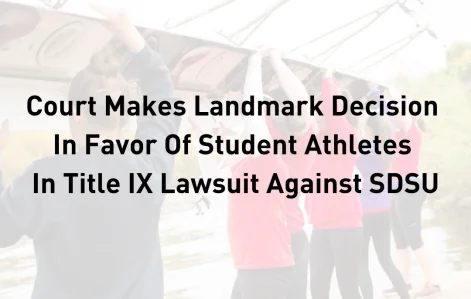The State of California implemented several employment laws that took effect on January 1, 2020. Here are some that may impact you.
Another Step Forward For A Living Wage
This year, the California minimum wage jumped to $12 per hour for companies with 25 employees or fewer, and $13 per hour for companies with more than 25 employees. The City of San Diego’s minimum wage is now $13 per hour for all employees, regardless of the employer’s size. Note that some cities in California have minimum wages that are even higher, for example, South San Francisco at $15 per hour.
Misclassification of Employees as Independent Contractors (Assembly Bill No. 5; Labor Code §§3351 & 2750.3)
This law sets forth the test to be used for determining whether a worker is an employee or an independent contractor, the so-called ABC test, set out in Dynamex. Under this test, a worker is considered an employee rather than an independent contractor unless the hiring party demonstrates that all three of the following conditions are satisfied:
A. The worker is free from the control and direction of the hiring party;
B. The worker performs work that is outside the usual course of the hiring entity’s business; and
C. The worker is customarily engaged in an independently established business of the same nature as the work performed.
The law has seven categories of exemptions. A worker who falls within one of the exemptions is not automatically considered an independent contractor; instead, the hiring party must demonstrate that it did not control the “manner and means” of accomplishing the desired result.
Extension of Time To File a DFEH Complaint (Assembly Bill No. 9; Government Code §§12960 & 12965)
The time period to file a Complaint with the Department of Fair Employment and Housing (“DFEH”) for complaints of unlawful employment practices has been extended from one year to three years.
No Forced Arbitration as a Condition of Employment (Assembly Bill No. 51; Government Code §12953; Labor Code §432.6)
Employers may not force employees to agree to arbitration as a condition of employment or continued employment. Employers also cannot threaten, retaliate or discriminate against, or terminate any employee or applicant for employment for refusing to agree to arbitration. Note that this law does not invalidate arbitrations the employee has previously agreed to.
Prohibition of “No-Hire” Provisions (Assembly Bill No. 749; Code of Civil Procedure §1002.5)
Employers are prohibited from including a “no rehire” provision in settlement agreements with employees. The law, however, does not prohibit an agreement to end a current employment relationship.
Unpaid Leave For Organ Donation (Assembly Bill No. 1223; Government Code §19991.11; Labor Code §1510)
Employers are required to grant an employee up to 30 days of additional unpaid leave of absence for donating an organ and prohibits life, long-term care, or disability insurance policies from discriminating against an organ donor.
Discrimination in Calculating Monetary Damages Prohibited (Senate Bill No. 41; Civil Code §3361)
Calculations or estimations of past, present, or future damages for lost earnings or impaired earning capacity shall not be reduced based on race, ethnicity, or gender.
Lactation Accommodations (Senate Bill No. 142; Labor Code §§1030 – 1034)
Employers must provide a lactation room or location with certain features, and access to a sink and refrigerator in close proximity to the employee’s workspace. If the employer denies reasonable break time or adequate space to express milk, this is deemed a failure to provide a rest period in accordance with California law. Employers are prohibited from discriminating or retaliating against or terminating an employee for exercising or attempting to exercise their lactation rights.
No Discrimination Based on Natural Hairstyles (Senate Bill No. 188; Government Code §12926)
This law protects employees from discrimination based on natural hair and hairstyles associated with race. California is the first state to ban discrimination based on natural hair. California’s Fair Employment and Housing Act (“FEHA”) protects against discrimination based on certain personal characteristics, including race. This law expands the definition of “race” to include “traits historically associated with race, including, but not limited to, hair texture and protective hairstyles,” including “braids, locks, and twists.”
Sanctions For Employer’s Non-Payment of Arbitration Fees (Senate Bill No. 707; Code of Civil Procedure §§1280 and 1281.96 – 1281.99)
If an employer strategically withholds payment of arbitration fees in order to delay or impede arbitration proceedings, this law allows arbitrators and courts to impose appropriate sanctions on the employer, including terminating sanctions. The law also addresses the lack of diversity in the arbitration industry by requiring arbitration companies to report the same kind of demographic information about their arbitrators as the Judicial Council is required to report about California state court judges.
Contact Us If You Believe Your Employer Violated the Law
The attorneys at Haeggquist & Eck, LLP are experienced and dedicated professionals who are committed to protecting your rights in the workplace. If you feel that your rights may have been violated, contact our attorneys online or at (619) 342-8000 to learn more.





